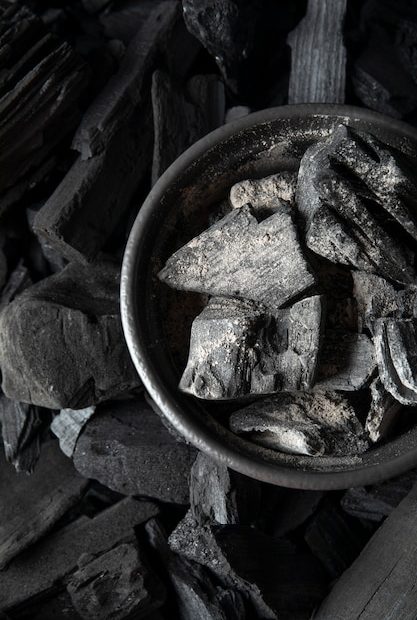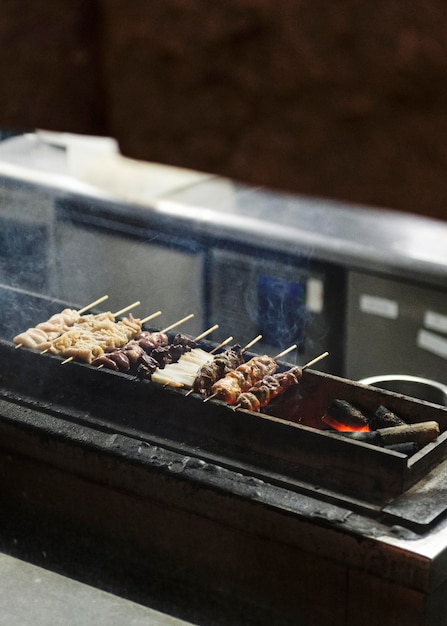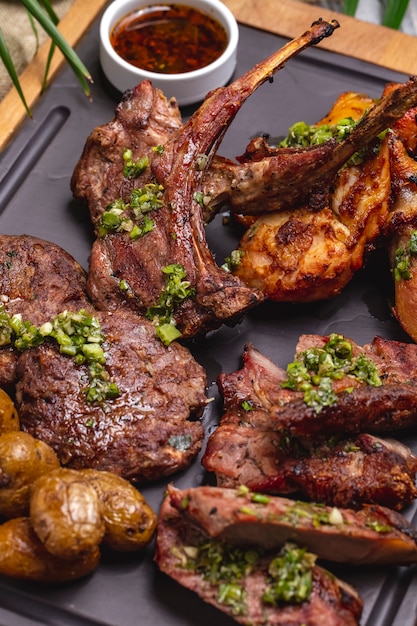How long does cooked beef last in the fridge?
Introduction
Knowing how long cooked beef can last in the fridge is important for maintaining food safety and avoiding foodborne illnesses. Proper storage and handling of cooked beef can help extend its shelf life and ensure it remains safe to consume.
When it comes to storing cooked beef, there are several factors that can affect its longevity, such as the type of beef, the cooking method used, and the storage conditions. By understanding these factors and following recommended guidelines, you can maximize the freshness and quality of your cooked beef.
Fridge Storage Guidelines for Cooked Beef
According to the UK Food Standards Agency, cooked beef can be safely stored in the fridge for up to three to four days. It is important to note that this timeframe applies to cooked beef that has been properly stored in airtight containers or wrapped tightly with foil or plastic wrap to prevent any contamination.
To ensure the safety and quality of your cooked beef, it is essential to follow these storage guidelines:
- Properly store: After cooking, allow the beef to cool down before transferring it to the refrigerator. Store the cooked beef in shallow, airtight containers or wrap it tightly with appropriate wrapping materials. This helps to maintain the moisture and prevent the growth of bacteria.
- Label and date: It is advisable to label the containers or wraps with the date of cooking. This will help you keep track of the storage time and avoid consuming spoiled beef.
- Keep at proper temperature: Set your fridge temperature to below 5°C (41°F) to slow down bacterial growth and maintain the quality of the cooked beef. Regularly check and monitor the temperature to ensure it remains within the safe range.
Signs of Spoiled Cooked Beef
While properly stored and refrigerated cooked beef can last for a few days, it is crucial to be able to recognize signs of spoilage. Consuming spoiled beef can lead to food poisoning and other health issues. If you notice any of the following signs, it is best to discard the cooked beef:
- Off smell: If the beef emits a sour or unpleasant odor, it is a clear indication that it has gone bad.
- Abnormal texture or appearance: Look out for slimy or discolored patches on the beef, as these can be signs of bacterial growth.
- Strange taste: If the cooked beef tastes off, bitter, or different from its usual flavor, it is best to play it safe and not consume it.
“When in doubt, throw it out.” – Unknown
Tips for Maximizing Shelf Life
To extend the shelf life of cooked beef and maintain its quality, consider the following tips:
Freezing:
If you have a large quantity of cooked beef that you won’t be able to consume within the recommended timeframe, consider freezing it. Properly wrapped or airtight containers can help preserve the flavor and texture of the beef for up to three months in the freezer.
Portion control:
Instead of storing a large batch of cooked beef, divide it into smaller portions before refrigerating. This way, you can take out only what you need, reducing the chances of wastage and ensuring freshness.
Reheating:
When reheating cooked beef, make sure to heat it thoroughly to kill any potential bacteria. Ensure the internal temperature reaches at least 75°C (165°F) to ensure food safety.
In conclusion, cooked beef can last in the fridge for up to three to four days when properly stored and refrigerated. Following the recommended guidelines, such as using airtight containers, labeling, and maintaining the correct temperature, will help maximize its shelf life. Always trust your senses and discard cooked beef that displays signs of spoilage. By practicing proper storage and handling, you can enjoy safe and delicious cooked beef for longer periods.
How do you store raw beef in the fridge?
When it comes to storing raw beef in the fridge, there are a few important steps to follow to ensure its freshness and safety. Proper storage can help prevent foodborne illnesses and extend the shelf life of your meat. Here’s a guide on how to store raw beef in the fridge:
1. Choose the right packaging:
When purchasing raw beef, make sure it is tightly sealed and properly packaged. This will help maintain its quality and prevent cross-contamination in the fridge. If the original packaging is damaged or inadequate, transfer the beef to an airtight container or wrap it in plastic wrap.
2. Store in the coldest part of the fridge:
The coldest part of the fridge is usually the back bottom shelf. This is where you should store raw beef to keep it at a safe temperature and minimize the risk of bacterial growth.
3. Keep it separate from other foods:
To avoid cross-contamination, store raw beef away from other food items in the fridge. Place it on a lower shelf to prevent any drips or leaks from contaminating other foods.
4. Use a drip tray or place it on a plate:
To catch any possible juices or liquids that may leak from the packaging, place the raw beef on a plate or use a drip tray. This will prevent bacteria from spreading to other areas in the fridge.
5. Follow the use-by date:
Always check the use-by date on the raw beef packaging and consume or freeze it before that date. Consuming meat past its expiration date can be risky for your health.
Note: Proper storage in the fridge can typically keep raw beef fresh for up to 3-5 days.
6. Freeze if not using within a few days:
If you’re not planning to use the raw beef within a few days, it’s best to freeze it. Wrap it tightly in freezer-safe packaging or place it in airtight containers before freezing. Be sure to label the package with the date to keep track of its freshness.
7. Thaw safely:
When you want to use the frozen raw beef, thaw it in the fridge rather than at room temperature. This slow thawing process helps maintain the meat’s quality and prevents bacterial growth.
By following these guidelines, you can store raw beef safely in your fridge, reducing the risk of foodborne illnesses and ensuring its freshness when you’re ready to cook.
Is it better to freeze beef cooked or raw?
Freezing is a convenient way to preserve food, but when it comes to beef, you may be wondering whether it’s better to freeze it cooked or raw. Well, the answer depends on your preferences and how you plan to use the beef later.
Freezing Raw Beef
If you have fresh, uncooked beef that you won’t be able to consume before it spoils, freezing it raw is a great option. This allows you to lock in the freshness and flavors for a later time. Before freezing, make sure to wrap the beef tightly in plastic wrap or place it in an airtight container to prevent freezer burn.
Once thawed, raw beef can be used for various dishes such as stews, stir-fries, or grilling. Just remember to cook it thoroughly to kill any harmful bacteria that may be present.
Freezing Cooked Beef
If you have leftover cooked beef that you want to save for future meals, freezing it can extend its shelf life. Cooked beef can be frozen in portions, making it easier to defrost and use as needed.
Cooked beef can be used in salads, sandwiches, casseroles, or even as a quick protein addition to pasta dishes. It saves you time on cooking and adds versatility to your meal planning.
Considerations for Quality
Whether you decide to freeze beef cooked or raw, there are a few considerations to ensure the best quality when you later consume it:
- Label and date: Always label your frozen beef with the date it was frozen to keep track of its freshness.
- Storage timeframe: Raw beef can typically be stored in the freezer for up to 6-12 months, while cooked beef should be consumed within 2-3 months for optimal quality.
- Thawing properly: When defrosting frozen beef, it is safest to do so in the refrigerator overnight. This helps maintain the texture and flavor of the meat.
“Freezing cooked or raw beef can both be viable options, depending on your needs. Just be sure to follow proper storage and thawing practices for the best taste and safety.”
Can you eat 2 year old frozen beef?
Many people wonder if it is safe to eat beef that has been frozen for an extended period of time. Specifically, there is often confusion surrounding the safety and quality of beef that has been frozen for two years. Let’s take a closer look at this common question.
Is it safe to eat frozen beef?
Frozen beef can be safely consumed even after extended periods of freezing. The freezing process helps to preserve the quality and freshness of the meat by inhibiting the growth of bacteria. However, it is important to note that the longer beef is frozen, the more likely it is to experience freezer burn and deteriorate in quality.
What is freezer burn?
Freezer burn occurs when moisture is lost from the beef due to improper packaging or prolonged storage. This can result in dry, discolored spots on the surface of the meat. While freezer burn doesn’t make the beef unsafe to eat, it can affect the taste and texture negatively. It’s best to trim off freezer-burned areas before cooking for the best eating experience.
How to store frozen beef
- Proper packaging: To maintain the quality of frozen beef, ensure it is well-sealed to prevent freezer burn. Use airtight, freezer-safe packaging such as heavy-duty freezer bags or vacuum-sealed containers.
- Labeling: Clearly label the packaging with the date of freezing to keep track of the beef’s age and prioritize consumption accordingly.
- Storage conditions: Store frozen beef at a constant temperature of 0°F (-18°C) or below to maintain its quality over an extended period. Avoid frequent temperature fluctuations by not leaving the freezer door open for extended periods of time.
Quality and taste considerations
“While it may be safe to eat beef that has been frozen for two years, the quality and taste may be compromised. It’s always best to consume frozen beef within recommended timeframes for optimal flavor.” – Food Safety Expert
The longer beef is frozen, the more likely it is to lose its quality in terms of taste, texture, and overall flavor. For the best eating experience, it is advisable to consume frozen beef within a year of freezing. However, if the beef has been properly stored and shows no signs of freezer burn, it can still be safely consumed after two years, although it may not taste as good as freshly frozen meat.
Remember to always practice proper food safety measures and trust your judgment. If the beef appears spoiled, has an off smell, or shows signs of discoloration beyond normal freezer burn, it is best to discard it rather than risk foodborne illness.
Conclusion
Ultimately, the decision to freeze beef cooked or raw depends on how you plan to use it later. If you want the flexibility to prepare the beef in different ways, freezing it raw is a good choice. On the other hand, if you have leftover cooked beef and want to save time in the kitchen, freezing it cooked can be more convenient.
Whichever method you choose, remember to follow proper storage practices and thaw the beef safely for the best results. Happy freezing!


